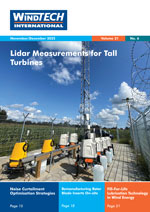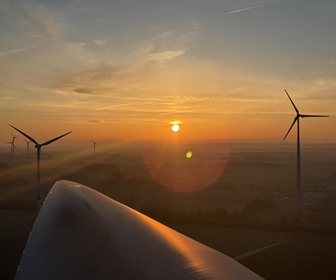 Revitalising wind turbine OEMs’ profitability: strategies for success
Revitalising wind turbine OEMs’ profitability: strategies for successThe profitability challenges faced by wind turbine OEMs have become an increasingly pressing concern within the industry. In order to ensure the long-term sustainability of the wind energy sector, it is crucial to implement specific strategies that can enhance the profitability of these OEMs. Let us explore the available options and potential solutions to this complex issue.
One key approach to driving profitability is for wind turbine OEMs to allocate a significant portion of their resources to R&D. By increasing investment in advanced technologies and innovation, OEMs can develop more efficient and reliable turbines. However, the question arises as to whether OEMs have the financial capability to invest more in R&D given the current market conditions. That R&D is important is shown by the fact that Siemens Energy has issued a profit warning for 2023 due to the substantial increase in failure rates of certain Siemens Gamesa onshore wind turbine components. According to an official statement, potential quality-related measures and the associated costs are currently under evaluation and are likely to be in excess of € 1 billion. Experts from outside the company have already claimed this number might be even higher. It is definitely not a good start now that Siemens Energy has just purchased the remaining shares in Siemens Gamesa.
To maximise profitability, wind turbine OEMs could also consider diversifying their product offerings and exploring new markets. Expanding into areas such as hydrogen, energy storage, grid integration solutions, and hybrid systems can create additional revenue streams and strengthen the overall supply chain. Energy storage and hydrogen are topics that several OEMs are already looking at. Hydrogen especially looks promising in combination with offshore wind.
Efficient maintenance and service operations play a pivotal role in driving profitability. OEMs can leverage the power of digitalisation, predictive analytics, and remote monitoring systems to proactively identify maintenance needs, minimise downtime and optimise overall turbine performance. By harnessing data-driven insights and leveraging technological advancements, OEMs can improve their operational efficiency, reduce maintenance costs and enhance customer satisfaction. For example, in the article on page 22, Marouane Salhi states that the wind industry has reaped the benefits of the advances in software, but he argues that we are only scratching the surface of capturing the value of software in wind energy and that incumbent industry players should work with rising tech start-ups to reap those gains.
Government support and favourable policies also play an instrumental role in driving wind turbine OEM profitability. Governments can stimulate private investment and industry growth by offering research grants, tax incentives and stable regulatory frameworks. The extension of the production tax credit in the USA and the Inflation Reduction Act serve as good examples of such support. Furthermore, fostering alignment between OEMs, governments and industry associations can lead to the development of policies that create a favourable business environment, promote stability, and fuel the growth of the wind energy supply chain.
In conclusion, to make the most wanted green transition a reality, revitalising the profitability of wind turbine OEMs is a must. By prioritising research and development, diversifying product offerings, optimising operations and fostering collaboration with governments and industry stakeholders, OEMs can overcome the challenges they face and thrive in the ever-evolving wind energy landscape. It is through these strategic initiatives that the profitability of wind turbine OEMs can be rejuvenated, ultimately ensuring the long-term success and sustainability of the wind energy industry as a whole.
Enjoy reading,
Floris Siteur
Publisher
Publisher









